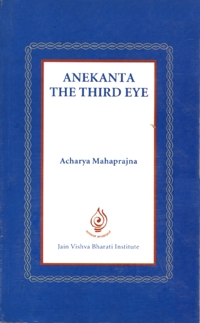
The conscious has two levels: Thoughts and experience. Man, for most part lives at the level of thoughts. Imagination constantly throws up thoughts that find expression and finally disappear. One thought is assuaged, another emerges. The second one finds assurance, the third crops up. This sequence never breaks. Our journey of life takes place mounted on thoughts. We do not have the practice of remaining thoughtless. We do not have the practice of experience. We do not know it. The name of the conscious is experience. Experience is an ocean of placid water. Within it there are no thoughts. Thoughts stir the waters and make it passionate and full of ripples. It does not let the ocean remain peaceful.
A man was meditating. He told his disciple, "I want to drink water. Get water from the river." The disciple returned empty handed. On being asked the reason he replied, "The water has become muddy because just now a few bullock carts passed through the river." He waited for some time and went to fill water three times after that but each time he found the water still muddy. The mud had not yet settled down. The disciple went the fourth time and returned with clean water. The teacher asked, "Did you understand anything or not?" The disciple replied, "What was there that was worth understanding? The bullock carts stirred the waters and so they became muddy. As soon as the mud settled, the water was clean again. There does not seem to be any great secret embedded in this happening."
To this the teacher answered, "This is exactly what has to be understood. When the bullock carts of our thoughts traverse our minds and move out, then our mind becomes peaceful. It becomes clean. This cleanliness is experience. This is our conscious experience. When thoughts are subdued, then conscious experience rises. The one who does not meditate, who has not gone through the process of appeasing the mind of thoughts will never be able to have a clean and peaceful consciousness. How many bullock carts traverse the river? But the number that traversing the mind far exceeds the number the sum total of all the bullock carts in the world. With thoughts how can we make our conscious pure and clean? This is possible only when thoughts are emptied out. We learn to move away from thoughts and remain in a thoughtless state. The only solution to arrest thoughts is meditation. Only when we go into the depths of meditation is this possible. And meditation cannot be carried out without anekanta. Without anekanta the purpose and utility of meditation cannot also be explained.”
 Acharya Mahaprajna
Acharya Mahaprajna
